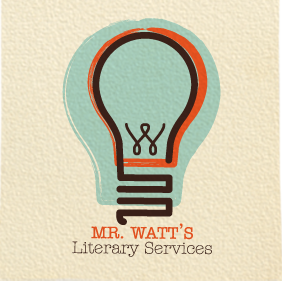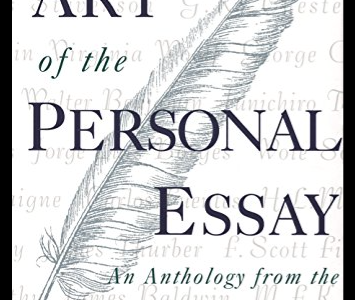JASON QIN
Chaim Potok’s The Chosen throws the reader into a bildungsroman, a coming of age story, of two Jews, Danny Saunders and Reuven Malter, during the tail-end of World War Two and its aftermath as the horrors of the Holocaust are unveiled to the public, and movements like Zionism rise to debate the idea of the Jewish nation-state… all of which comes to a head in Chapter 13.

Chapter 13 starts Book 3, which begins Danny and Reuven’s education at the Samson Raphael Hirsch Seminary and College, where Danny is studying psychology and Reuven is studying mathematical logic, and Danny is miserable. He is solely interested in Freudian psychoanalysis, while the psychology taught in the College only consists of experimental psychology, taught by a Professor Appleman. He rejects it, as he sees zero connection between rats and mazes, mathematics, and the mind. However, after some heated venting, Danny decides to consider Reuven’s suggestion to talk to his professor about it after class. When Reuven comes home, he narrates to us his father’s passion for Zionism and how his passion for it is affecting his health, as he will do anything for the Jewish nation-state in Palestine.

One must understand the significance of Reuven’s father being an avid Zionist. Danny is Hasidic, son of a tzaddik (leader of a group of Hasids), and that tzaddik, Reb Saunders, despises Zionism. He believes that the Jewish nation-state should be built by the Messiah, and not by “Jewish goyim,” or as he puts it, “contaminated men” (198).
When the second semester rolls around, Danny finally decides to meet with Professor Appleman, and he finds out that because Freud is not the only source of truth in terms of psychology, Reuven begins coaching Danny in math. Back at home, the reader learns about a Zionist rally at Madison Square Garden, where Reuven’s father is going to give a speech, on possibly the largest stage in New York, which may or may not be a huge success and be published in many newspapers that Reb Saunders may read. In school (Reuven switches between home and school a lot), Reuven can feel the tensions rising, and Zionist and anti-Zionist groups form, everyone but the Hasids on one side. It seems as though Chaim Potok is building to a climax, letting the tensions simmer until they finally break, with the Madison Square Garden rally.
Mr. Malter’s speech is a massive success, and Danny is banned from speaking to Reuven. At this point in the novel, it seems as though this is Reuven’s low, as while the Zionist movement is making headway, it is causing many personal problems. While others are cheering, Reuven is “alternating between violent rage at Reb Saunders’ blindness and anguished frustration at Danny’s helplessness” (232). While the world is moving around him, he is stuck in a quagmire that his shattered friendship left behind.
This novel is not just about two boys growing up, for Chaim Potok makes sure that every world event is timed perfectly with his story, and in reality, this time period allows for the most tumultuous character development for these two Jewish boys. Rooted in external issues out of their control, such as the Hasidic tradition that is forced on Danny, The Chosen brings the gut-wrenching feeling of injustice to the reader, and all of it culminates in Chapter 13.
Reuven may very well be caught in the worst possible time in history, as who knows, perhaps this situation is playing out somewhere else in the world. Not only that, Mr. Malter explains Reb Saunders’ reaction by saying that “he has no answer anymore to [his] Zionism,” that he needs to uphold an example as the tzaddik (232). Perhaps Reb Saunders is not targeting Reuven with his rage, but the movement of Zionism as a whole. However, that does not explain his explosions he had “yesterday at breakfast, last night at supper, and this morning again at breakfast,” nor does it negate how Reuven is being personally affected (231). Although Reb Saunders’ anger is not directed at Reuven individually, Reuven clearly feels the effects. He hates Reb Saunders with a “venomous passion,” so much so that “it began to affect [his] schoolwork” (234). Reuven clearly feels the effect of the passions of an unjust man, so who is to say that personal injustice is not being inflicted onto him?
AARON HUR responds:
I appreciated the fact that you talked a lot about Zionism, and the contrast between Reb Saunders and Mr. Malter’s beliefs. I think that the whole basis of that chapter was centered around Zionism, and eventually Mr. Malter’s speech, leading to perhaps the end of Reuven and Danny’s friendship. Something that you said that stuck out to me especially was when you were talking about Chaim’s strategy for writing the book: “This novel is not just about two boys growing up, for Chaim Potok makes sure that every world event is timed perfectly with his story, and in reality, this time period allows for the most tumultuous character development for these two Jewish boys.” I agree that all of these events, the start of WWII, Roosevelt’s death, the Holocaust, all world events that take place in this book, are timed to sort of throw a wrench in Danny and Reuven’s life. I additionally agree that it all culminates in chapter 13. This is the high point in the controversy between Danny and Reuven’s family, and although it has been stirring up throughout the book, Reb Saunders has had enough of it, as it gets unleashed in Chapter 13.




